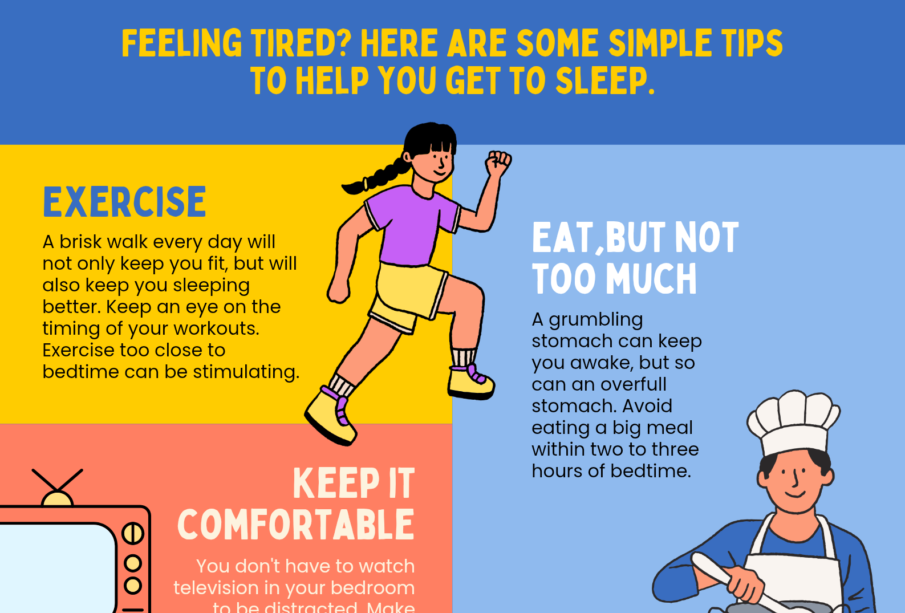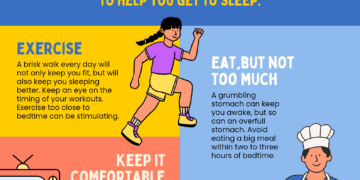Wellness and Lifestyle: The Ultimate Sleep Guide for Better Health

Wellness and Lifestyle: Sleep Guides for a Healthier You
Discover how quality sleep impacts your mental, physical, and emotional health. Learn practical sleep tips, lifestyle habits, and natural remedies to improve your wellness through better sleep.
Sleep is more than just rest—it’s a cornerstone of wellness. In today’s fast-paced lifestyle, quality sleep is often sacrificed for productivity, entertainment, or stress. However, consistent, restorative sleep is essential for physical health, mental clarity, emotional balance, and even longevity.
💤 Why Sleep Matters in Wellness
1. Physical Health
Sleep is when the body repairs itself. Deep sleep boosts immune function, supports cardiovascular health, regulates hormones, and promotes cellular regeneration. Chronic sleep deprivation is linked to obesity, diabetes, hypertension, and weakened immunity.
2. Mental and Emotional Health
Poor sleep is closely tied to anxiety, depression, and mood swings. During sleep, especially REM (rapid eye movement), your brain processes emotions and memories, helping you stay emotionally resilient and mentally focused.
3. Productivity and Cognitive Performance
A good night’s sleep enhances concentration, creativity, problem-solving, and decision-making. Sleep also improves learning and memory consolidation—making it essential for students and professionals alike.
—
🌙 Signs You’re Not Getting Good Sleep
Struggling to fall asleep within 30 minutes
Waking frequently during the night
Feeling groggy or fatigued in the morning
Relying on caffeine or naps to function
Irritability or trouble concentrating during the day
—
🧘♀️ Sleep and Lifestyle: Practical Guides
1. Create a Sleep-Positive Environment
Dark, cool, and quiet: Ideal conditions for melatonin production
Invest in your mattress and pillow: Comfort improves sleep duration
Limit screens before bed: Blue light disrupts circadian rhythm
2. Establish a Bedtime Ritual
Try a warm shower, herbal tea, or light reading
Use calming activities like journaling or meditation
Avoid stressful conversations or work right before bed
3. Optimize Your Day for Better Nights
Exercise regularly (but not too close to bedtime)
Eat light at night: Heavy meals delay digestion and sleep
Limit caffeine after 2 PM and avoid alcohol before bed
4. Stick to a Sleep Schedule
Go to bed and wake up at the same time daily—even on weekends
Helps reset your body’s internal clock and improves sleep quality
🌙 Wellness and Lifestyle: The Ultimate Sleep Guide
🧠 What Is Sleep and Why Does It Matter?
Sleep is a biological process that allows your mind and body to rest, repair, and reset. Without quality sleep, even a healthy diet or regular exercise won’t give you optimal well-being. Sleep affects almost every system in the body, including your brain, heart, lungs, metabolism, mood, and immune function.—
🧬 The Science Behind Sleep
Sleep occurs in cycles, each lasting around 90 minutes and consisting of four stages:
1. NREM Stage 1 – Light sleep, easy to wake
2. NREM Stage 2 – Body temperature drops, heart rate slows
3. NREM Stage 3 – Deep sleep (physical healing, immune system strengthens)
4. REM Sleep – Brain activity increases (dreams occur, memory and mood processing)
You cycle through these stages 4–6 times per night. Missing deep or REM sleep impacts your mood, memory, immune response, and metabolism.
—
😴 How Sleep Affects Wellness Holistically
1. Mental Health
Inadequate sleep increases cortisol (stress hormone)
Links to depression, anxiety, and brain fog
Poor REM sleep reduces emotional resilience and empathy
2. Physical Health
Sleep supports tissue repair, hormone balance, and immune response
Chronic lack of sleep increases risks of heart disease, stroke, and type 2 diabetes
Short sleep duration is associated with weight gain and insulin resistance
3. Performance and Energy
Better sleep = better focus, productivity, decision-making
Athletes and students see improved results with 8+ hours of quality sleep
—
⏰ Sleep Challenges in Modern Life
Blue light exposure (screens) disrupts melatonin
Caffeine, alcohol, and late meals affect sleep quality
Stress, overworking, and mental overload delay sleep onset
Inconsistent schedules confuse your circadian rhythm (body clock)
—
🌿 Natural Lifestyle Tips for Better Sleep
✅ Daytime Habits
Wake up at the same time daily
Get morning sunlight (helps regulate melatonin)
Exercise daily—but not within 2 hours of bedtime
Avoid long naps or keep them under 30 minutes
🛌 Evening Routine
Wind down 60–90 minutes before sleep
Read, meditate, stretch, or journal
Take a warm shower or bath
Use lavender, chamomile tea, or calm music for relaxation
📵 Sleep Environment Tips
Keep your bedroom cool (16–20°C / 60–68°F)
Block all light (use blackout curtains or eye mask)
No screens at least 30–60 minutes before bed
Consider white noise or sleep sounds if you live in a noisy area
—
🛑 Avoid These Sleep Disruptors
Caffeine after 2 PM
Heavy meals before bed
Late-night scrolling or gaming
Alcohol – may make you sleepy but ruins sleep quality
Overthinking at bedtime – use a “worry journal” to clear your mind
—
🧘♀️ Mind-Body Practices for Sleep
Deep breathing (4-7-8 method)
Progressive muscle relaxation
Guided meditation or body scan
Gratitude journaling before sleep
Use mindfulness apps like Calm or Headspace
—
🕒 How Much Sleep Do You Need?
Age Group Ideal Sleep Duration
Children (6–12 yrs) 9–12 hours
Teens (13–18 yrs) 8–10 hours
Adults (18–64 yrs) 7–9 hours
Seniors (65+) 7–8 hours
—
🧩 Sleep Myths vs. Truth
Myth Reality
“You can catch up on sleep later” Lost deep sleep can’t be fully recovered later
“Older adults need less sleep” Seniors still need 7–8 hours
“Alcohol helps you sleep” It disrupts REM and causes poor-quality sleep
“More sleep is always better” Oversleeping may signal poor sleep quality
—
✨ Final Takeaway
Better sleep = Better life.
In the pursuit of wellness, sleep is the foundation, not a luxury. Prioritizing sleep hygiene, managing stress, and creating a balanced daily rhythm will not only help you fall asleep faster but also wake up refreshed and resilient.
Whether you’re a student, parent, working professional, or retiree—good sleep is your secret wellness superpower.















